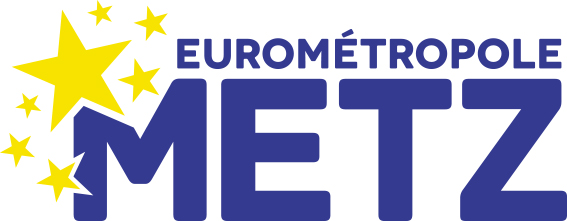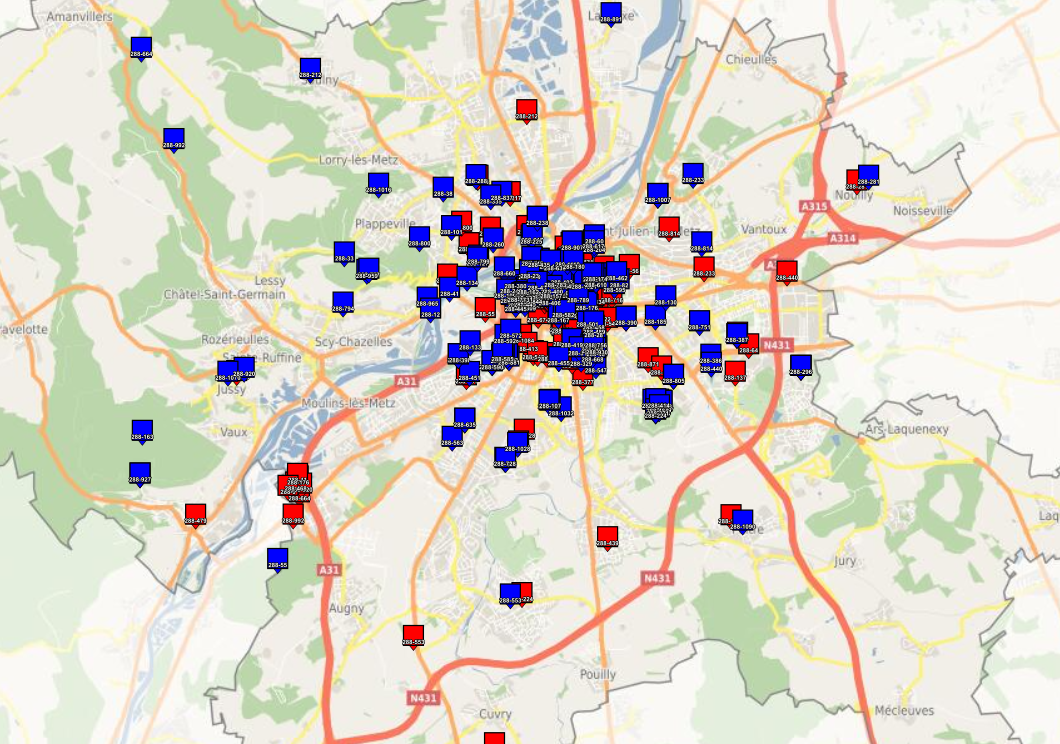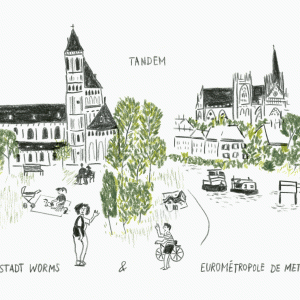Heat Islands and Cold Islands: An Interactive and Participatory Map for Residents
Between June and September 2021, the inhabitants of the Metz Eurometropolis were invited to report, via an online form, a coolness island felt in the public space and a heat island. The results will be used to help elected officials and departments in their thinking about future land-use projects.


Overview of the project

Between June 2021 and September 2021, the inhabitants of the Eurometropolitan Area were invited to report, via an online form, a cold island in the public space (an oasis where they like to go in case of heat wave), as well as a heat island (for example a street or a square where they feel overheated during summer).
Questions and comment fields allowed users to explain why they chose these specific locations. These questions, which were identical for the Metz Eurometropolitan Area and the City of Worms, also made it possible to compare the feelings of the respective populations of the two territories.
At the same time, the Metz Metropolitan Area is providing technical support for a project to analyse the modelling of the urban heat islands in the metropolitan area, in order to obtain scientifically sound data and to cross-reference it with the effects felt by the users.
The Metz Eurometropolitan Area can now rely on the results of these two studies to help elected officials and departments think about future land use and public space projects, road works, mobility, urban planning, etc. It is also proposed to put the interactive cartography back online in the summer of 2022 to consolidate the results already obtained and to continue raising awareness of urban overheating and health issues. Urban walks on the theme of heat will also be proposed in parallel.
To identify the heat and cold islands that are experienced, and to raise awareness of issues related to overheating.
Pilote operation, experimentation
20/06/2021-30/09/2021
180 people took part in the Eurometropolitan Area of Metz. 44 also wanted to become ambassadors, which will enable the Eurometropolitan Area to train local intermediaries in the future.
This study made it possible to identify more than 400 points, including heat and cold islands.
Of the heat islands identified, 60% are located on public squares and 19% on streets. The main reasons given by the inhabitants are: lack of shade, hot ground, lack of vegetation.
Of the identified cold islands, 42% are located in a park or a forest and only 16% on a public square.
Cette opération a permis à l’Eurométropole de Metz et à la Ville de Worms de mieux comprendre la caractéristique des espaces recherchés ou à l’inverse fuis par les habitants lors des épisodes de chaleur. Ces derniers recherchent en effet l’ombre des arbres, mais également la proximité de l’eau ou encore les courants d’air. Ces éléments permettront d’alimenter les réflexions autour de la requalification des espaces publics ou les projets d’aménagement futurs.
This project was financed by the Franco-German Citizens' Fund (https://www.fondscitoyen.eu/accueil).
organisation
The Eurometropolitan Area of Metz in Moselle includes 45 municipalities since 1 January 2020 and is located at the heart of an urban area of 500,000 inhabitants. It has been one of the 22 French metropolitan areas since 1 January 2018. This status and its new competences enable it to strengthen its influence at regional, national and European levels, but also to implement policies that are closer to the needs of its inhabitants.
Its field of action is based on the following main areas:
- Economic, social and cultural development
- Metropolitan spatial planning
- Management of services of public interest
- Local housing policy
- Urban policy
- Protection and enhancement of the environment, living environment.
in collaboration
Project carried out in partnership with the City of Worms (Germany), and with the participation of Climate Alliance and Energy Cities in the framework of the Eurometropolitan Area of Metz-City of Worms TANDEM.

